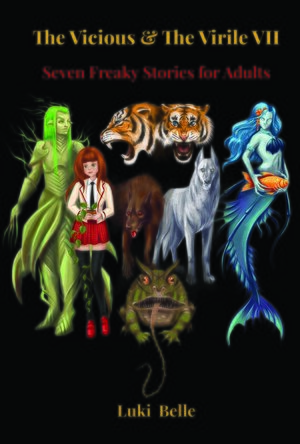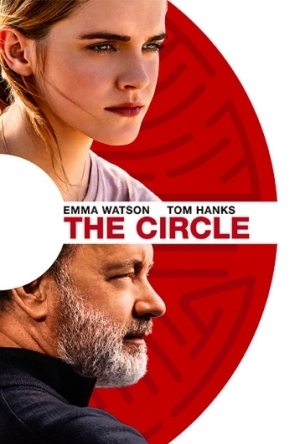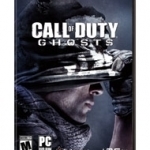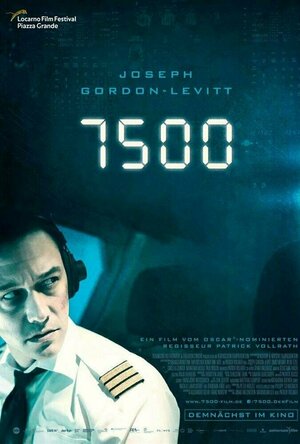Search
Search results
Gareth von Kallenbach (980 KP) rated Crazy Rich Asians (2018) in Movies
Jul 2, 2019
Crazy Rich Asians, Kevin Kwan’s romantic comedy has been delivered to the theaters with all of the glamour and glitz portrayed in the bestselling novel. This film features an all Asian Cast, a rarity, since the last American studio film to feature that was Joy Luck Club 25 years ago. This movie marks the first time Asians are cast as leads in a romantic comedy.
Rachel Chu’s (Constance Wu) journey to meet her boyfriend Nick Young’s (Henry Golding) family could be a bit of a fish out of water tale. Rachel is the daughter of a Chinese single mother who immigrated to America. Being an economics professor at NYU, is pretty prestigious accomplishment and Rachel loves what she does. She has been seeing Nick for over a year. He has his best friend’s wedding in Singapore and suggests that Rachel comes along to meet his friends and family.
Nick is from a well off family, a subject that he had never mentioned before. The first thing that tips her off is the treatment that they receive on the plane. When Rachel finds out that his family is well off, it does not change their relationship. However, she still does not realize how extensive the family finances are and is definitely not aware of the social status of the Youngs.
Singapore in all of its crisp and elegant beauty is a character in itself. We are taken to the many sites on the island as it is shown to Rachel. From the moment the couple arrive, they are met at the airport by Colin Khoo (Chris Pang), Nick’s best friend the groom and Araminta Lee (Sonoya Mizuno) the bride. They are taken to one of the Hawker’s Centre full of stalls, each specializing in a handful of dishes, some with a Michelin Star. We see an incredible smorgasbord in a quick cut of food porn. Nothing in Rachel’s first taste of town indicates the opulence that is to come.
Rachel goes to see Piek Goh(Awkwafina), her roommate during college. The Goh family is “new wealth” and we see the gilded display throughout to the point of excess. We meet Piek’s parents , Neenah (Chieng Mun Koh) and Wye Mun (Ken Jeong, bringing his brand of weird, creepy and awkward as Piek’s dad). The Gohs welcome Rachel with such warmth and treats her like family. This is where she learns how affluent and respected the Young’s are in Singapore. Piek takes it upon herself to provide her best friend with a fabulous suit of armor and education in order to survive the introduction to the world of the Youngs.
Meeting the Youngs is comparable to being introduced to the Royal Family of Singapore and Rachel was not aware of the social graces that are expected in the circles of the crazy rich. You can see that she is not accustomed to the superabundance that she is witnesses and is a little overwhelmed in trying to adapt. As Nick introduces her to his mother Eleanor (Michelle Yeoh), Rachel immediately gleams that his mother does not like her. Thus begins the power play between them. Eleanor doesn’t think that Rachel is an appropriate candidate to be the future Mrs. Young and Rachel wants to be accepted as she is and now feels the need to prove that she is good enough for Nick.
The only member of Nick’s family that Rachel has met is Astrid Young Teo (Gemma Chan) his cousin. If Eleanor is the Queen, then Astrid is the princess. She doesn’t walk, she glides. The societal cognoscenti hold her in high esteem. The women want to have her style and the men want to have her. With all the grace and beauty, she reigns in the land of the crazy rich. Rachel liked her some much that she says Astrid is who she wants to be when she grows up. Those who think that her life golden, is unaware that she has her own problems.
We are introduced to the wedding party and the extensive lavishness of the super rich of Asia. It may seem ridiculous and an exaggeration, but the lifestyle of the crazy rich and Asian is based on reality. As Rachel carefully steps through the social landmines that have appeared, she becomes more confident in her own ability and recognizes the game and how to play it.
I thoroughly enjoyed this movie, I wanted to see it again to catch all the things that I did not soak in from the first viewing. The story has a great balance of comedy and drama with Ken Jeong and Awkwafina gifting us with hilarious one liners and Constance Wu playing the confident woman learning how to find her footing. Henry Golding does exceptionally well on his first ever feature film, playing the man who has found love outside of the world of the Crazy Rich Asians.
This is an excellent romantic comedy that is served on a golden platter. Jon M. Chu has delivered a wonderfully delicious story that deserve to be watched over and over again. If you are a fan of the romantic comedy genre, take the time with this gem of a movie.
Rachel Chu’s (Constance Wu) journey to meet her boyfriend Nick Young’s (Henry Golding) family could be a bit of a fish out of water tale. Rachel is the daughter of a Chinese single mother who immigrated to America. Being an economics professor at NYU, is pretty prestigious accomplishment and Rachel loves what she does. She has been seeing Nick for over a year. He has his best friend’s wedding in Singapore and suggests that Rachel comes along to meet his friends and family.
Nick is from a well off family, a subject that he had never mentioned before. The first thing that tips her off is the treatment that they receive on the plane. When Rachel finds out that his family is well off, it does not change their relationship. However, she still does not realize how extensive the family finances are and is definitely not aware of the social status of the Youngs.
Singapore in all of its crisp and elegant beauty is a character in itself. We are taken to the many sites on the island as it is shown to Rachel. From the moment the couple arrive, they are met at the airport by Colin Khoo (Chris Pang), Nick’s best friend the groom and Araminta Lee (Sonoya Mizuno) the bride. They are taken to one of the Hawker’s Centre full of stalls, each specializing in a handful of dishes, some with a Michelin Star. We see an incredible smorgasbord in a quick cut of food porn. Nothing in Rachel’s first taste of town indicates the opulence that is to come.
Rachel goes to see Piek Goh(Awkwafina), her roommate during college. The Goh family is “new wealth” and we see the gilded display throughout to the point of excess. We meet Piek’s parents , Neenah (Chieng Mun Koh) and Wye Mun (Ken Jeong, bringing his brand of weird, creepy and awkward as Piek’s dad). The Gohs welcome Rachel with such warmth and treats her like family. This is where she learns how affluent and respected the Young’s are in Singapore. Piek takes it upon herself to provide her best friend with a fabulous suit of armor and education in order to survive the introduction to the world of the Youngs.
Meeting the Youngs is comparable to being introduced to the Royal Family of Singapore and Rachel was not aware of the social graces that are expected in the circles of the crazy rich. You can see that she is not accustomed to the superabundance that she is witnesses and is a little overwhelmed in trying to adapt. As Nick introduces her to his mother Eleanor (Michelle Yeoh), Rachel immediately gleams that his mother does not like her. Thus begins the power play between them. Eleanor doesn’t think that Rachel is an appropriate candidate to be the future Mrs. Young and Rachel wants to be accepted as she is and now feels the need to prove that she is good enough for Nick.
The only member of Nick’s family that Rachel has met is Astrid Young Teo (Gemma Chan) his cousin. If Eleanor is the Queen, then Astrid is the princess. She doesn’t walk, she glides. The societal cognoscenti hold her in high esteem. The women want to have her style and the men want to have her. With all the grace and beauty, she reigns in the land of the crazy rich. Rachel liked her some much that she says Astrid is who she wants to be when she grows up. Those who think that her life golden, is unaware that she has her own problems.
We are introduced to the wedding party and the extensive lavishness of the super rich of Asia. It may seem ridiculous and an exaggeration, but the lifestyle of the crazy rich and Asian is based on reality. As Rachel carefully steps through the social landmines that have appeared, she becomes more confident in her own ability and recognizes the game and how to play it.
I thoroughly enjoyed this movie, I wanted to see it again to catch all the things that I did not soak in from the first viewing. The story has a great balance of comedy and drama with Ken Jeong and Awkwafina gifting us with hilarious one liners and Constance Wu playing the confident woman learning how to find her footing. Henry Golding does exceptionally well on his first ever feature film, playing the man who has found love outside of the world of the Crazy Rich Asians.
This is an excellent romantic comedy that is served on a golden platter. Jon M. Chu has delivered a wonderfully delicious story that deserve to be watched over and over again. If you are a fan of the romantic comedy genre, take the time with this gem of a movie.
Cynthia Armistead (17 KP) rated The Horns of Elfland in Books
Mar 1, 2018
It took a while to track down this volume, as it has long been out of print. Interlibrary loan was, once again, my friend. But how odd to read an actual physical book again, when I've been reading ebooks almost exclusively lately!
Most of the stories were a bit darker than anticipated. 1997 was not such a depressing time to me, so I'm not sure why that would be the case.
I've had to send the book back to the library already, so I don't have it at hand despite finishing it last night.
The first standout story was "The Drummer and the Skins" by [a:John Brunner|23113|John Brunner|http://photo.goodreads.com/authors/1234623516p2/23113.jpg]. Finding a reference to a Yoruban peoples' tradition in a white British author's story was somewhat surprising, but go figure. I'm a white southern American woman, too. I suppose some people might argue that neither of us have no right to be interested/know about such things/whatever. I think of Brunner as a very hard SF writer, so that was especially surprising from him. His inclusion in a fantasy anthology was a surprise altogether. These surprises are some of the things I enjoy about anthologies - they challenge my assumptions.
I was rather bitter when I first thought I understood what [a:Terri Windling|46137|Terri Windling|http://photo.goodreads.com/authors/1235254340p2/46137.jpg]'s novelette "The Color of Angels was about. "Just what I need to read about," I told Sam. "A story about a woman gradually losing everything she loves to illness." MS, in the story (not one of my diagnoses, but it hit far too close to home, anyway). Suffice it to say that I was glad that I continued to read.
Even if I hadn't been happy with where the story went, I would not have been able to resist Windling's writing. She brings in so much of the world - colors, textures, music - so that I felt far more immersed in that one piece than I have in my own life at times. She is marvelously evocative. I haven't managed to put my hands on any of the Bordertown/Borderlands books, despite seeking them for a long time. Now I'm adding her solo works to to the "look for" list, and pushing them much higher on the priority scale.
"The Death of Raven" by [a:Ellen Kushner|11889|Ellen Kushner|http://photo.goodreads.com/authors/1243007888p2/11889.jpg] was unexpectedly comforting. Very brief, quite simply, but one I would love to see reprinted to increase its availability. (It may have been reprinted, for all I know. I certainly hope that it has been.) I've got Kushner's novels on my "to-read" shelf, but I think I'll move them up a bit.
Most of the stories were a bit darker than anticipated. 1997 was not such a depressing time to me, so I'm not sure why that would be the case.
I've had to send the book back to the library already, so I don't have it at hand despite finishing it last night.
The first standout story was "The Drummer and the Skins" by [a:John Brunner|23113|John Brunner|http://photo.goodreads.com/authors/1234623516p2/23113.jpg]. Finding a reference to a Yoruban peoples' tradition in a white British author's story was somewhat surprising, but go figure. I'm a white southern American woman, too. I suppose some people might argue that neither of us have no right to be interested/know about such things/whatever. I think of Brunner as a very hard SF writer, so that was especially surprising from him. His inclusion in a fantasy anthology was a surprise altogether. These surprises are some of the things I enjoy about anthologies - they challenge my assumptions.
I was rather bitter when I first thought I understood what [a:Terri Windling|46137|Terri Windling|http://photo.goodreads.com/authors/1235254340p2/46137.jpg]'s novelette "The Color of Angels was about. "Just what I need to read about," I told Sam. "A story about a woman gradually losing everything she loves to illness." MS, in the story (not one of my diagnoses, but it hit far too close to home, anyway). Suffice it to say that I was glad that I continued to read.
Even if I hadn't been happy with where the story went, I would not have been able to resist Windling's writing. She brings in so much of the world - colors, textures, music - so that I felt far more immersed in that one piece than I have in my own life at times. She is marvelously evocative. I haven't managed to put my hands on any of the Bordertown/Borderlands books, despite seeking them for a long time. Now I'm adding her solo works to to the "look for" list, and pushing them much higher on the priority scale.
"The Death of Raven" by [a:Ellen Kushner|11889|Ellen Kushner|http://photo.goodreads.com/authors/1243007888p2/11889.jpg] was unexpectedly comforting. Very brief, quite simply, but one I would love to see reprinted to increase its availability. (It may have been reprinted, for all I know. I certainly hope that it has been.) I've got Kushner's novels on my "to-read" shelf, but I think I'll move them up a bit.
JT (287 KP) rated The Dictator (2012) in Movies
Mar 10, 2020
Sacha Baron Cohen is back doing what he does best, offending everyone and anyone without so much as a care in the world. The Dictator is a much funnier venture than Bruno was (while not quite as shocking) and still provides some hilarious moments.Given the recent run of press that dictators like Saddam Hussein, Colonel Gaddafi and Kim Jong Il have had this provides an untapped platform of Cohen’s ability to step up to.
As fictional dictator Hafez Aladeen he rules over The Republic of Wadiya, and Cohen models the character on all of the above in some way. The film is even dedicated to the memory of Kim Jong Il, and let’s not forget his real life appearance at a US awards ceremony where he spilled the ashes of the Korean dictator all over the red carpet and on entertainment anchor Ryan Seacrest.
It’s not that Aladeen is particularly vicious, despite claiming that he has sent men to execution for the slightest thing, say not making weapons of mass destruction with a pointy top, he’s just a bit of an idiot.
After refusing to sell Wadiyan oil internationally and denying that he has or is in the process of making nuclear weapons Aladeen heads to New York to address the UN Council. While there he’s captured and left to fend for himself on the streets of New York, while one of his lookalikes takes his place in order to sign a document democratizing Wadiya and opening the country’s oil fields for business.
In typical Cohen fashion there are some scenes that might still touch the nerves of a few American civilians. One particular involves Aladeen and his former head of the W.M.D. program, Nadal take a joy flight in a helicopter above the New York Skyline.
While surveying the landscape they talk in Wadiyan about Aladeen’s Porsche 911, well you can pretty much see where it’s going to go from there. It’s one of a few great scenes that you’re either going to wince at or laugh out loud. The film also draws in the acting talents of Ben Kingsley (how or why he agreed is beyond me) as Aladeen’s right hand man who is responsible for the plot to bring him down.
Also along for the ride is Anna Faris, no slouch when it comes to the slapstick comedy field, she’s more than at home here as Aladeen’s love interest. Directed by Larry Charles who was also behind the camera for Borat and Bruno it keeps tradition with juvenile humor and un-politically correct jokes. If you don’t laugh you’ll be asking yourself how the hell has he got away with it….again!?
As fictional dictator Hafez Aladeen he rules over The Republic of Wadiya, and Cohen models the character on all of the above in some way. The film is even dedicated to the memory of Kim Jong Il, and let’s not forget his real life appearance at a US awards ceremony where he spilled the ashes of the Korean dictator all over the red carpet and on entertainment anchor Ryan Seacrest.
It’s not that Aladeen is particularly vicious, despite claiming that he has sent men to execution for the slightest thing, say not making weapons of mass destruction with a pointy top, he’s just a bit of an idiot.
After refusing to sell Wadiyan oil internationally and denying that he has or is in the process of making nuclear weapons Aladeen heads to New York to address the UN Council. While there he’s captured and left to fend for himself on the streets of New York, while one of his lookalikes takes his place in order to sign a document democratizing Wadiya and opening the country’s oil fields for business.
In typical Cohen fashion there are some scenes that might still touch the nerves of a few American civilians. One particular involves Aladeen and his former head of the W.M.D. program, Nadal take a joy flight in a helicopter above the New York Skyline.
While surveying the landscape they talk in Wadiyan about Aladeen’s Porsche 911, well you can pretty much see where it’s going to go from there. It’s one of a few great scenes that you’re either going to wince at or laugh out loud. The film also draws in the acting talents of Ben Kingsley (how or why he agreed is beyond me) as Aladeen’s right hand man who is responsible for the plot to bring him down.
Also along for the ride is Anna Faris, no slouch when it comes to the slapstick comedy field, she’s more than at home here as Aladeen’s love interest. Directed by Larry Charles who was also behind the camera for Borat and Bruno it keeps tradition with juvenile humor and un-politically correct jokes. If you don’t laugh you’ll be asking yourself how the hell has he got away with it….again!?

Kid Chameleon Classic
Games and Stickers
App
Enter Kid Chameleon and experience SEGA's colossal platformer! Unleash your super powers in...
Bob Mann (459 KP) rated The Circle (2017) in Movies
Sep 29, 2021
Social Media involvement in political manipulation? Don’t be ridiculous!
Set in the near future “The Circle” tells a horror story of the social media age involving an omnipotent American corporate, pitched somewhere between being Facebook-like and Google-like (note, lawyers, I just said “like”!) Emma Watson (“Beauty and the Beast“) plays young intern Mae who, partly through the aid of family friend Annie (Karen Gillan, “Guardians of the Galaxy“, “Doctor Who”) but mostly through her own aptitude, lands a foothold job in customer services for the company. With the lush corporate campus fast becoming home, Mae is quickly singled out as having “executive potential” by the charismatic CEO Bailey (Tom Hanks, “Bridge of Spies“) and his more taciturn sidekick Stenton (US comedian Patton Oswalt).
Progressively brainwashed into believing the company’s intrusive snooping (a favourite motto is “Secrets are Lies”) is all for ‘the greater good’, Mae champions the cause until a tragedy rocks her world and her company beliefs to the core.
Whenever I watch a film I tend to form my own opinion first before checking out what the ‘general public’ on IMDB think. In this case, I must confess to being a bit surprised at our divergence of views: a lot of people clearly hated this movie whereas I confess that I found it very entertaining. Certainly with the alleged role of Russia in influencing elections around the world via social media, the film is most certainly topical! Many reviewers seemed quite upset that Watson’s character is such a ‘doormat’, in that her views are so easily manipulated by the corporate machine. But not every woman – as indeed every man – can or should be a Joan of Arc style role model in every film: why should they be?
I actually found her indoctrination into “the Circle way” as quite convincing, especially a creepy scene where two corporate lackies (Cho Smith and Amir Talai) say that they’re not checking up on Mae’s social life, but…. Watson enjoys extending her post-Potter repertoire well, but the talented John Boyega (“Star Wars: The Force Awakens“) is completely wasted in his role as Ty; the Wozniak-like genious behind The Circle’s technology. The script gives him very little to do other than stand around and look grumpy.
A wasted John Boyega with Emma Watson.
The film is sad in being the last movie appearance of the great Bill Paxton (“Apollo 13”) who plays Mae’s sick father and who died of complications following heart surgery two months before the film’s release (the film is dedicated “For Bill”). Tragically, Mae’s mother in the film, actress Glenn Headly (“Dirty Rotten Scoundrels”) also died suddenly at the age of 62, also due to heart problems, a couple of months after the film’s release. It’s surprising the film doesn’t have a “curse of The Circle” tag on it.
The film was directed by James Ponsoldt, who also wrote the screenplay with novel-writer Dave Eggers (“Away We Go”). I particularly liked the on-screen use of captioning (posts) which was reminiscent to me of last year’s “Nerve“, a B-movie film I rated highly that also had a string social media theme.
While the ending of the film is a bit twee – a movie definition of “being hoisted by your own petard” – it’s overall a thought provoking piece sufficiently close to the truth as to where society is going to raise the hairs on your neck.
Progressively brainwashed into believing the company’s intrusive snooping (a favourite motto is “Secrets are Lies”) is all for ‘the greater good’, Mae champions the cause until a tragedy rocks her world and her company beliefs to the core.
Whenever I watch a film I tend to form my own opinion first before checking out what the ‘general public’ on IMDB think. In this case, I must confess to being a bit surprised at our divergence of views: a lot of people clearly hated this movie whereas I confess that I found it very entertaining. Certainly with the alleged role of Russia in influencing elections around the world via social media, the film is most certainly topical! Many reviewers seemed quite upset that Watson’s character is such a ‘doormat’, in that her views are so easily manipulated by the corporate machine. But not every woman – as indeed every man – can or should be a Joan of Arc style role model in every film: why should they be?
I actually found her indoctrination into “the Circle way” as quite convincing, especially a creepy scene where two corporate lackies (Cho Smith and Amir Talai) say that they’re not checking up on Mae’s social life, but…. Watson enjoys extending her post-Potter repertoire well, but the talented John Boyega (“Star Wars: The Force Awakens“) is completely wasted in his role as Ty; the Wozniak-like genious behind The Circle’s technology. The script gives him very little to do other than stand around and look grumpy.
A wasted John Boyega with Emma Watson.
The film is sad in being the last movie appearance of the great Bill Paxton (“Apollo 13”) who plays Mae’s sick father and who died of complications following heart surgery two months before the film’s release (the film is dedicated “For Bill”). Tragically, Mae’s mother in the film, actress Glenn Headly (“Dirty Rotten Scoundrels”) also died suddenly at the age of 62, also due to heart problems, a couple of months after the film’s release. It’s surprising the film doesn’t have a “curse of The Circle” tag on it.
The film was directed by James Ponsoldt, who also wrote the screenplay with novel-writer Dave Eggers (“Away We Go”). I particularly liked the on-screen use of captioning (posts) which was reminiscent to me of last year’s “Nerve“, a B-movie film I rated highly that also had a string social media theme.
While the ending of the film is a bit twee – a movie definition of “being hoisted by your own petard” – it’s overall a thought provoking piece sufficiently close to the truth as to where society is going to raise the hairs on your neck.

The Vicious & The Virile VII: Seven Freaky Stories for Adults
Book
A collection of short horror stories, The Vicious and The Virile VII offers a captivating...
Dark Fantasy Short Story Collection
Gareth von Kallenbach (980 KP) rated the PC version of Call of Duty: Ghosts in Video Games
Jun 19, 2019
Call of Duty: Ghosts is the latest installment in the commonly popular series and the first design with the next generation of consoles in mind. The 10th main game in the series is brought to life by series creator Infinity Ward with assistance from Raven and Neversoft, was written by Academy award-winning writer-director Stephen Gaghan who lists “Traffic” and “Syrianna” among his many credits.
Starting a whole new story arc, the game is set in the near future when a group of militants from the Latin American-based power conglomerate called the Federation, launch a surprise attack on a space station and unleash a devastating attack upon cities of the American Southwest that utterly destroys many of them in the process. The game jumps forward in time and follows the exploits of two brothers named Logan and David who nearly escaped the destruction of San Diego and 10 years later find the remaining American forces fighting a war against the ever-expanding Federation forces. When a rescue mission goes awry, Logan and David find themselves recruited by their father Elias into an elite Ghost Squad unit who soon discover that members of their unit are being hunted down by a former member named Rorke who was assumed killed on a mission many years earlier. The fact that Rorke may also be behind the attack on the United States as well as a big cog in the Federation’s plans springs the team into action with the fate of the United States hanging in the balance.
Players will play as various characters and assume control of everything from remote operated weaponry, Apache helicopters, tanks, and even a German shepherd named Riley who is a very welcome addition to the series. The heavily modified engine produces some amazing graphics in the game especially during some of the more scenic locales ranging from underwater missions to snow-covered landscapes as well as desolate cities such as Vegas and San Diego. Playing on the PC, did require a bit of patience at launch as the graphics did not seem up to par with what we’ve come to expect from the series much less a next-generation tweaking of the engine. Thankfully the game was soon patched and the graphics stepped up considerably although in multiplayer there were some frustrating moments where the mouse was not recognized and I had to do a series of workarounds until a patch resolved the issue. I still have occasional issues with the system wanting to reset the graphics down to the base level even though my card is more than capable of running the high-level graphics setting. This is a very minor annoyance though as I am able to customize the controls and settings anyway that I like and the gameplay is absolutely phenomenal as the developers clearly put an emphasis on a higher frame rate and smoother gameplay experience.
Fans of the series will know what to expect as there are a lot of familiar touches such is the wave-based attacks, stealth missions, and at the gun battles that are signature of the series. Early in the game, many moments seem to have been almost carbon copies of earlier games but thankfully the game finds stride roughly at the midway point and presses the accelerator all the way to the boards for one nonstop thrill ride which includes an epic finale and some shocking moments along the way not the least of which are the bonus scenes during the credits.
While I was able to complete the solo campaign in just under five hours I did find myself really caught up in the story and the characters which is something that I had not experienced in Black Ops 2 as a largely completed the solo play portion of that game out of obligation rather than compulsion. Absolutely love the space fight sequences as the Zero G combat was great and I would absolutely love to see an entire game set in this environment. I also loved taking control of the tank and running over opponents while unleashing furious amounts of firepower upon all those that crossed my path.
Now multi-play is the bread-and-butter of series and Ghosts definitely has a lot to offer in this category. From the co-op missions to the alien infested “Extinction” mode for up to four players battle against hordes of aliens for survival the game truly has something for everyone. Fans will be happy to know that in addition to the standard Death Match, Team Death Match, Kill Confirmed, and Domination modes there are five other modes which include Infected, Blitz, Search and Rescue, Search and Destroy, and Cranked as well as the standard and Hardcore modes of play.
Customization has long been a big part of the series and this timeout players can play is either a male or female character and have the option to customize the look of their player and online matches down to the type of headgear and uniform that they wear. As with previous games in the series, players are awarded points for kills, assists, and other challenges and actions during gameplay which allow them to rank up and obtain new weaponry, perks, and kill streak rewards. While I did find the customization menus took a little bit to get used to after being so familiar with the ones in the previous games, I soon was up and running and found plenty of options to my liking and I continue to experiment with various configurations to date.
The online maps are fantastic and full of detail however some of them appear to not have the same graphical wow as others because most of them absolutely blow you away and are filled with all sorts of nice touches such as dust and particle effects which have caused players with itchy trigger fingers to jump at shadows and shooter the paper flowing in the wind. The biggest complaint many people have with the maps is that they are extremely large in size and would be better suited for larger teams rather than the current number that is limited for online play. I specifically enjoy one in the snow as well as one set in a devastated city complete with leaning and partially destroyed buildings which allow endless opportunity to get the drop on your opponent especially from many floors up.
While I had some initial frustrations with the game, they quickly vanished and the more time I spent with it the more I was drawn into the characters and storyline as well as the multi-play versatility of the game. Well if used frustrations remain I have no doubt they will be patched eventually, and while I would’ve liked a slightly longer story mode what was presented was absolutely epic and delivered one of the best call of duty experiences to date.
I highly recommend the game and encourage people to focus on the many things that the game and gets right instead of lamenting about things that you wish they were included or what you feel was done wrong because it is a phenomenal ride that is not to be missed.
http://sknr.net/2013/11/17/call-of-duty-ghosts/
Starting a whole new story arc, the game is set in the near future when a group of militants from the Latin American-based power conglomerate called the Federation, launch a surprise attack on a space station and unleash a devastating attack upon cities of the American Southwest that utterly destroys many of them in the process. The game jumps forward in time and follows the exploits of two brothers named Logan and David who nearly escaped the destruction of San Diego and 10 years later find the remaining American forces fighting a war against the ever-expanding Federation forces. When a rescue mission goes awry, Logan and David find themselves recruited by their father Elias into an elite Ghost Squad unit who soon discover that members of their unit are being hunted down by a former member named Rorke who was assumed killed on a mission many years earlier. The fact that Rorke may also be behind the attack on the United States as well as a big cog in the Federation’s plans springs the team into action with the fate of the United States hanging in the balance.
Players will play as various characters and assume control of everything from remote operated weaponry, Apache helicopters, tanks, and even a German shepherd named Riley who is a very welcome addition to the series. The heavily modified engine produces some amazing graphics in the game especially during some of the more scenic locales ranging from underwater missions to snow-covered landscapes as well as desolate cities such as Vegas and San Diego. Playing on the PC, did require a bit of patience at launch as the graphics did not seem up to par with what we’ve come to expect from the series much less a next-generation tweaking of the engine. Thankfully the game was soon patched and the graphics stepped up considerably although in multiplayer there were some frustrating moments where the mouse was not recognized and I had to do a series of workarounds until a patch resolved the issue. I still have occasional issues with the system wanting to reset the graphics down to the base level even though my card is more than capable of running the high-level graphics setting. This is a very minor annoyance though as I am able to customize the controls and settings anyway that I like and the gameplay is absolutely phenomenal as the developers clearly put an emphasis on a higher frame rate and smoother gameplay experience.
Fans of the series will know what to expect as there are a lot of familiar touches such is the wave-based attacks, stealth missions, and at the gun battles that are signature of the series. Early in the game, many moments seem to have been almost carbon copies of earlier games but thankfully the game finds stride roughly at the midway point and presses the accelerator all the way to the boards for one nonstop thrill ride which includes an epic finale and some shocking moments along the way not the least of which are the bonus scenes during the credits.
While I was able to complete the solo campaign in just under five hours I did find myself really caught up in the story and the characters which is something that I had not experienced in Black Ops 2 as a largely completed the solo play portion of that game out of obligation rather than compulsion. Absolutely love the space fight sequences as the Zero G combat was great and I would absolutely love to see an entire game set in this environment. I also loved taking control of the tank and running over opponents while unleashing furious amounts of firepower upon all those that crossed my path.
Now multi-play is the bread-and-butter of series and Ghosts definitely has a lot to offer in this category. From the co-op missions to the alien infested “Extinction” mode for up to four players battle against hordes of aliens for survival the game truly has something for everyone. Fans will be happy to know that in addition to the standard Death Match, Team Death Match, Kill Confirmed, and Domination modes there are five other modes which include Infected, Blitz, Search and Rescue, Search and Destroy, and Cranked as well as the standard and Hardcore modes of play.
Customization has long been a big part of the series and this timeout players can play is either a male or female character and have the option to customize the look of their player and online matches down to the type of headgear and uniform that they wear. As with previous games in the series, players are awarded points for kills, assists, and other challenges and actions during gameplay which allow them to rank up and obtain new weaponry, perks, and kill streak rewards. While I did find the customization menus took a little bit to get used to after being so familiar with the ones in the previous games, I soon was up and running and found plenty of options to my liking and I continue to experiment with various configurations to date.
The online maps are fantastic and full of detail however some of them appear to not have the same graphical wow as others because most of them absolutely blow you away and are filled with all sorts of nice touches such as dust and particle effects which have caused players with itchy trigger fingers to jump at shadows and shooter the paper flowing in the wind. The biggest complaint many people have with the maps is that they are extremely large in size and would be better suited for larger teams rather than the current number that is limited for online play. I specifically enjoy one in the snow as well as one set in a devastated city complete with leaning and partially destroyed buildings which allow endless opportunity to get the drop on your opponent especially from many floors up.
While I had some initial frustrations with the game, they quickly vanished and the more time I spent with it the more I was drawn into the characters and storyline as well as the multi-play versatility of the game. Well if used frustrations remain I have no doubt they will be patched eventually, and while I would’ve liked a slightly longer story mode what was presented was absolutely epic and delivered one of the best call of duty experiences to date.
I highly recommend the game and encourage people to focus on the many things that the game and gets right instead of lamenting about things that you wish they were included or what you feel was done wrong because it is a phenomenal ride that is not to be missed.
http://sknr.net/2013/11/17/call-of-duty-ghosts/
Gareth von Kallenbach (980 KP) rated 7500 (2019) in Movies
Jun 22, 2020
Greetings & Salutations Everyone!
On behalf of myself and my fellows at ‘Skewed & Reviewed’ I want to say I hope all of you and those nearest and dearest to you continue to be healthy and safe during these uncertain times.
We’ve made it to another summer and with that comes a multitude of new films for the summer of 2020 only they’ll assemble in the queues on your digital devices rather than the movie theaters. Trust me. That’s a good thing right about now. We’re going to take a turn off the beaten path this time. Instead of a comedy or an action film, we’re going to start things off with a thriller. With all the unpleasantness going about it seems like an odd move perhaps? Not really. A well-made thriller film will create such intensity that you’ll completely forget about everything else at least for the film’s running time anyways. Judging from my own experience, today’s movie for you consideration will accomplish just that.
The aviation transponder code indicating that a hijack is in progress. Essentially the worst case scenario for any flight crew and accompanying passengers. The basis for today’s film. ‘7500’ is a 2019 an Austrian/German/American dramatic thriller from Amazon Studios and the directorial debut of German filmmaker Patrick Vollrath. Written by Vollrath and Senad Halilbasic and stars Joseph Gordon-Levitt (in his first film since 2016), Omid Memar, Aylin Tezel, Carlo Kitzlinger, Aurélie Thépaut, Murathan Muslu, and Paul Wollin.
Evening. Berlin Tegal Airport. Passengers and crew board a passenger plane bound for Paris. A routine flight (from what I’ve personally been told by retired U.S. Air Force personnel and friends in France, an amazing experience for any traveler). While the passengers begin to board he plane, Co-pilot Tobias Ellis (Levitt) and his girlfriend Gökce (Tezel) one of the flight attendants trying to decide on which school they can send their child too. Captain Michael Lutzmann (Kitzlinger) makes his way into the cockpit while making jokes regarding the plane. Everyday life. Flight check complete, the plane proceeds to take off and for the first few moments a routine trip. That quickly changes when a group of men including a young man named Vedat, attempt to break into the plane’s flight deck and take control of plane. After a brief but violent struggle, Tobias and Captain Lutzman despite both being wounded, overpower one of the hijackers and force the cockpit door closed. Over the course of the next few moments, the situation will go from bad to worse as the fate of the passengers, the crew, and even the hijackers will be left in Tobias’s hands as he attempts to get the plane to safety while injured and thwart the plans of Vedat and his associates. One thing is clear. No matter what happens, no matter how much he might want to, he cannot under any circumstances open the door to the flight deck.
Right off the bat. 4 out of 5 stars. The film was brilliant. My eyes were glued to the computer monitor for the 92 minute runtime of the movie. Part of which was due to the fact that the film was based entirely upon the idea of something that could very well possibly happen and unfortunately has happened before. There is a focus on conviction for both sides. How far is an individual prepared to go? What are they willing to do to prevent the other from overpowering them regardless if your intentions are just or malevolent? What is one willing to sacrifice in order to carry out an objective or safeguard the lives of a group? Joseph Gordon-Levitt might have been out of the game for a while but he certainly hasn’t lost his edge and the cast and crew of the film he decided to team-up with for this outing did not disappoint either.
I wouldn’t recommend this one for the kids due to the dark nature of the story and the violence involved at points in the film. It does touch upon certain stereotypes which perhaps should be talked about among those who see the movie. The film takes place almost exclusively on the flight deck of the plane which reminded me of Joel Schumacher’s 2003 film ‘Phone Booth’ starring Colin Farrell or Mukunda Michael Dewil’s 2013 film Vehicle 19 starring the late Paul Walker. The focus of the confined space only adds to the intensity and so very few directors have managed to pull off films like these three. Definitely add this film to your queue and pick a Friday or Saturday late night to view it. I personally believe the ‘Master of Suspense’ Alfred Hitchcock himself would have.
On behalf of myself and my fellows at ‘Skewed & Reviewed’ I want to say I hope all of you and those nearest and dearest to you continue to be healthy and safe during these uncertain times.
We’ve made it to another summer and with that comes a multitude of new films for the summer of 2020 only they’ll assemble in the queues on your digital devices rather than the movie theaters. Trust me. That’s a good thing right about now. We’re going to take a turn off the beaten path this time. Instead of a comedy or an action film, we’re going to start things off with a thriller. With all the unpleasantness going about it seems like an odd move perhaps? Not really. A well-made thriller film will create such intensity that you’ll completely forget about everything else at least for the film’s running time anyways. Judging from my own experience, today’s movie for you consideration will accomplish just that.
The aviation transponder code indicating that a hijack is in progress. Essentially the worst case scenario for any flight crew and accompanying passengers. The basis for today’s film. ‘7500’ is a 2019 an Austrian/German/American dramatic thriller from Amazon Studios and the directorial debut of German filmmaker Patrick Vollrath. Written by Vollrath and Senad Halilbasic and stars Joseph Gordon-Levitt (in his first film since 2016), Omid Memar, Aylin Tezel, Carlo Kitzlinger, Aurélie Thépaut, Murathan Muslu, and Paul Wollin.
Evening. Berlin Tegal Airport. Passengers and crew board a passenger plane bound for Paris. A routine flight (from what I’ve personally been told by retired U.S. Air Force personnel and friends in France, an amazing experience for any traveler). While the passengers begin to board he plane, Co-pilot Tobias Ellis (Levitt) and his girlfriend Gökce (Tezel) one of the flight attendants trying to decide on which school they can send their child too. Captain Michael Lutzmann (Kitzlinger) makes his way into the cockpit while making jokes regarding the plane. Everyday life. Flight check complete, the plane proceeds to take off and for the first few moments a routine trip. That quickly changes when a group of men including a young man named Vedat, attempt to break into the plane’s flight deck and take control of plane. After a brief but violent struggle, Tobias and Captain Lutzman despite both being wounded, overpower one of the hijackers and force the cockpit door closed. Over the course of the next few moments, the situation will go from bad to worse as the fate of the passengers, the crew, and even the hijackers will be left in Tobias’s hands as he attempts to get the plane to safety while injured and thwart the plans of Vedat and his associates. One thing is clear. No matter what happens, no matter how much he might want to, he cannot under any circumstances open the door to the flight deck.
Right off the bat. 4 out of 5 stars. The film was brilliant. My eyes were glued to the computer monitor for the 92 minute runtime of the movie. Part of which was due to the fact that the film was based entirely upon the idea of something that could very well possibly happen and unfortunately has happened before. There is a focus on conviction for both sides. How far is an individual prepared to go? What are they willing to do to prevent the other from overpowering them regardless if your intentions are just or malevolent? What is one willing to sacrifice in order to carry out an objective or safeguard the lives of a group? Joseph Gordon-Levitt might have been out of the game for a while but he certainly hasn’t lost his edge and the cast and crew of the film he decided to team-up with for this outing did not disappoint either.
I wouldn’t recommend this one for the kids due to the dark nature of the story and the violence involved at points in the film. It does touch upon certain stereotypes which perhaps should be talked about among those who see the movie. The film takes place almost exclusively on the flight deck of the plane which reminded me of Joel Schumacher’s 2003 film ‘Phone Booth’ starring Colin Farrell or Mukunda Michael Dewil’s 2013 film Vehicle 19 starring the late Paul Walker. The focus of the confined space only adds to the intensity and so very few directors have managed to pull off films like these three. Definitely add this film to your queue and pick a Friday or Saturday late night to view it. I personally believe the ‘Master of Suspense’ Alfred Hitchcock himself would have.

NLT Bible by Olive Tree
Reference and Book
App
NLT Bible+ by Olive Tree is a must-have app for reading and studying God’s Holy Word. Take notes,...

NIV Bible by Olive Tree
Reference and Book
App
NIV Bible by Olive Tree is the best free Bible app for reading and studying God’s Holy Word! Do...





